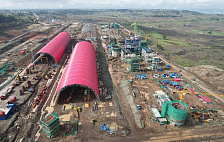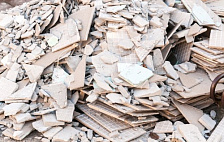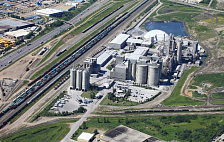Under its new evoZero brand, Heidelberg Materials is introducing the world’s first carbon captured net-zero cement to customers in Europe.
evoZero achieves its net-zero footprint through the application of carbon capture and storage technology at the Heidelberg Materials plant in Brevik, Norway, without compensation from credits generated outside the company’s value chain.
evoZero cement will be available in two versions, depending on the customer location. evoZero Carbon Captured Brevik is directly delivered from the Brevik CCS plant in Norway, achieving its net-zero footprint over the entire life cycle. Customers in other European countries may choose evoZero Carbon Captured, which will be delivered from plants close-by, while leveraging the unique carbon saving attributes realised in Brevik. evoZero Carbon Captured features a net-zero footprint upon delivery.
For both products, the carbon capture attributes are transparent and traceable by harnessing the power of blockchain technology through which Heidelberg Materials’ customers will receive a verifiable carbon proof for their evoZero purchase.
As CCS technology will not change the chemical composition and performance of cement, evoZero comprises the full cement portfolio, from conventional highest strength CEM-I to CEM-III. As a result, evoZero can be used for all kinds of applications.
evoZero products will be available across Europe. During the pre-selling phase now underway, customers can already place orders and secure the first batches of evoZero for their own sustainable building projects.
Brevik CCS is the world's first carbon capture facility in a cement plant on a large scale. Mechanical completion of the facility is scheduled for the end of 2024. Once operational, 400,000 tonnes of CO₂ per year will be captured and stored, which corresponds to 50% of the plant’s emissions – and is equivalent to taking around 180,000 cars off the road. Heidelberg Materials follows a clear, science-based approach to reduce its carbon footprint through the levers of product and process innovation as well as industrial-scale CCUS. With the CCUS projects already launched, the company aims to save 10 million tonnes of CO₂ cumulatively by 2030.








